Top 10 business events of 2019: Westpac to interest rates
Corporate Australia experienced plenty of spills and thrills in 2019. As the year draws to a close, Business Daily looks back at the 10 biggest events
Business
Don't miss out on the headlines from Business. Followed categories will be added to My News.
Corporate scandals, a slowing economy but stock markets hitting record highs. The year has thrown up plenty of curve balls for corporate Australia. Business Daily looks back at the 10 biggest business events of 2019.
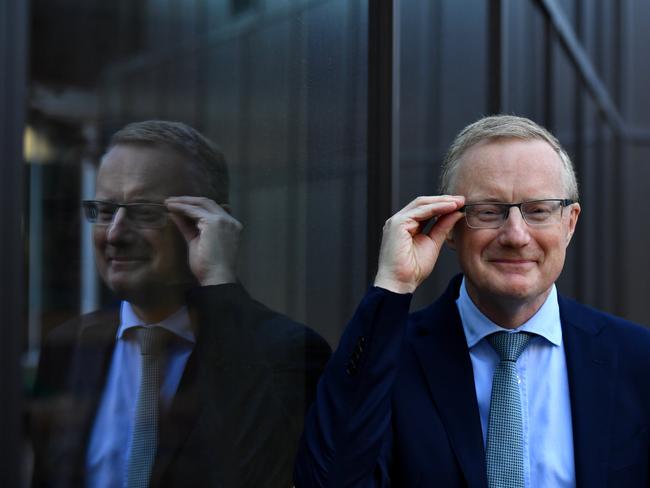
10 — THE US-CHINA TRADE WAR
It’s the 800-pound gorilla which continues to overshadow every corner of the global economy.
The tit-for-tat escalation of tariffs between the world’s two biggest economies kept investors on the edge of their seats through 2019.
Stocks markets across the globe rose and fell on expectations around if and when a deal would be delivered.
The year started well as a temporary truce was declared following the G20 Summit in Buenos Aires.
At that stage the US had implemented tariffs on US$250 billion worth of Chinese goods, while China had returned fire by targeting $US60 billion of American imports.
The goodwill didn’t hold and by the end of the year the US had whacked tariffs ranging from 10 per cent to 25 per cent of $US550 billion worth of Chinese imports, while China had targeted US$185 billion of US imports and moved to weaponise its currency.
The announcement of a partial deal in December provided a welcome Santa rally to stock markets but the US-China trade relationship will to dominate global market movements in 2020.
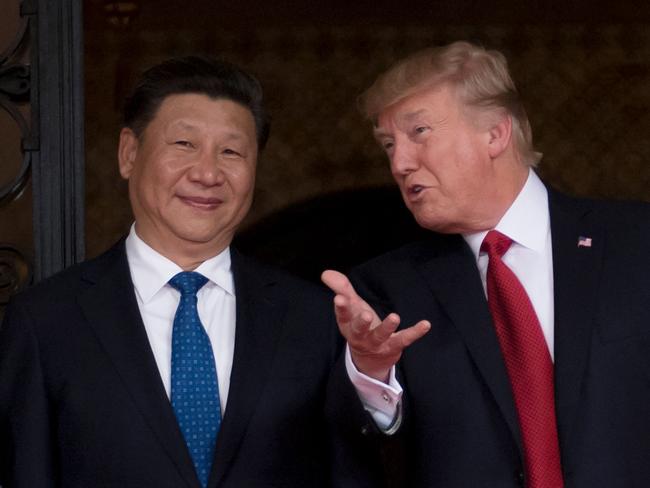
9 — TECH STOCKS
Technology stocks gave investors a turbocharged ride this year.
In the US the so-called FAANG stocks – Facebook, Apple, Amazon, Netflix and Google-owner Alphabet – all hit record highs.
Locally, a new generation of businesses, primarily buy now, pay later provider Afterpay Touch, logistics software provider WiseTech Global and electronics design software provider Altium turned investor heads with sharp share price rises.
Afterpay’s share price rose from $12 to $30 while Altium rose from $21.61 to more than $36.
WiseTech, which found itself in the middle of an ugly battle with short sellers questioning a heady string of acquisitions, started the year at $17 a share, broke through $38 in September before ending the year around the $25 mark.
The clutch of stocks also hit record price to earnings valuations – a key investor metric – fuelling plenty of debate around whether a new tech bubble has formed.
Overvalued and headed for a crash? Or businesses which are just at the start of a very long growth runway which spans the globe?
The year ahead is set to firm up some of the answers.
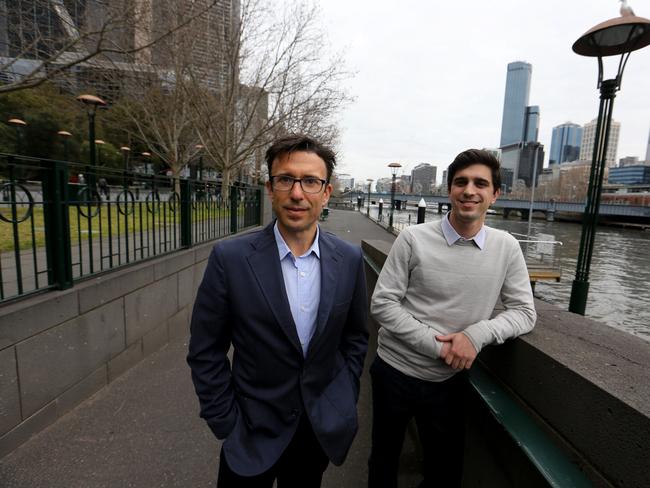
8 — HOUSE PRICES
Australia’s national obsession has been a constant background hum throughout 2019 as the economy emerged from the worst property downturn in more than 30 years.
That is welcome news as households – already experiencing sluggish wage growth – wound back their spending as the value of their single largest asset went backwards.
House prices peaked in Sydney and Melbourne in mid to late 2017 before falling 15 per cent and 11 per cent respectively.
They bottomed out in both cities in the middle of 2019 as interest rates were slashed the new record lows, the banking regulator eased the stress test for new loans and the federal election result removed uncertainty around the future of negative gearing.
The market is once again heating up with house prices in Sydney and Melbourne bouncing back by more than 7 per cent.
Whether that, along with lower interest rates and tax cuts, will be enough to get consumers spending again remains to be seen.

7 — UNDERPAYMENT SCANDALS
Just how many workers are being ripped off by their boss?
It’s a fair question given the spate of major employers fessing up to having underpaid their workforce.
Woolworths angered the nation in October when it revealed close to 6000 staff working in its supermarkets had been short-changed $300 million and warned the figure could rise.
While Woolworths stands as the largest underpayments case in the nation’s history, the retail giant is far from alone in short-changing it workers.
Other businesses to fess up to underpaying staff include Bunnings, Sunglass Hut, Michael Hill International, Super Retail Group, Qantas Airways and the Commonwealth Bank, as well as restaurant groups backed by high-profile chefs including George Calombaris and Neil Perry.
Tougher penalties are now on the horizon as the government drafts criminal penalties for employers who exploit workers.
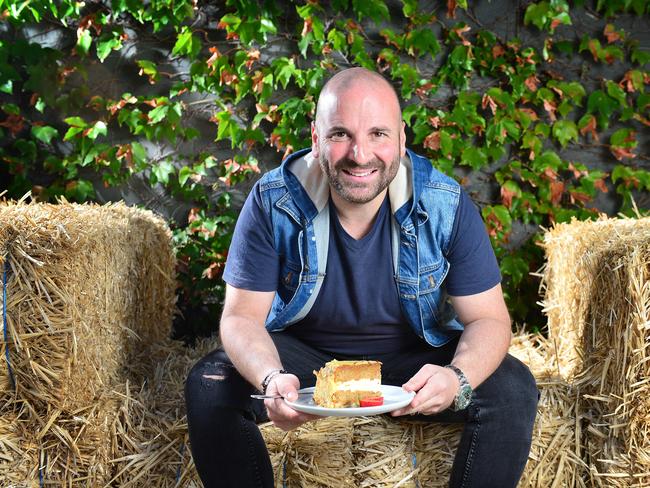
6 — ARNOTT’S SOLD
Is a packet of Tim Tams about to be shrunk from 11 biscuits to nine? Will Savoy replace Jatz? And does each state needs its own version of Ginger Nut?
The sale of Arnott’s to a major US private equity group had Aussies pondering those unpalatable options over their tea and biscuits.
Following a drawn-out auction process, Arnott’s US owner, Campbell Soup Company, announced in August it was selling the famous Aussie biscuit maker to Kohlberg Kravis Roberts & Co for $3.2 billion.
The sale marked an end of an era for Arnott’s which had been owned outright by Campbell’s since 1997.
It also raises the prospect of production of some of the nation’s best loved treats being moved offshore – a move which may well spark a consumer backlash.

5 — THE ELECTION
It was the “miracle” result chalked up to the “quiet Australians”.
Prime Minister Scott Morrison’s unexpected election victory – Sportsbet paid out a Labor win before the voting booths opened – was perhaps the most significant for the business community in several decades.
Former Labor leader Bill Shorten campaigned on a big taxing, big spending agenda which delivered plenty of sound bites against big business and the top end of town.
If Labor had won the May 18 poll negative gearing and capital gains tax breaks on property would have been wound back and cash refunds for excess franking credits scrapped.
The would-be prime minister had also promised to cap private health insurance premiums, while many investors were bracing for higher bank levies and tougher restrictions on mortgage brokers.
Little surprise then that the share prices of insurance companies, banks and listed property companies chalked up the biggest gains in the days following the Morrison upset.
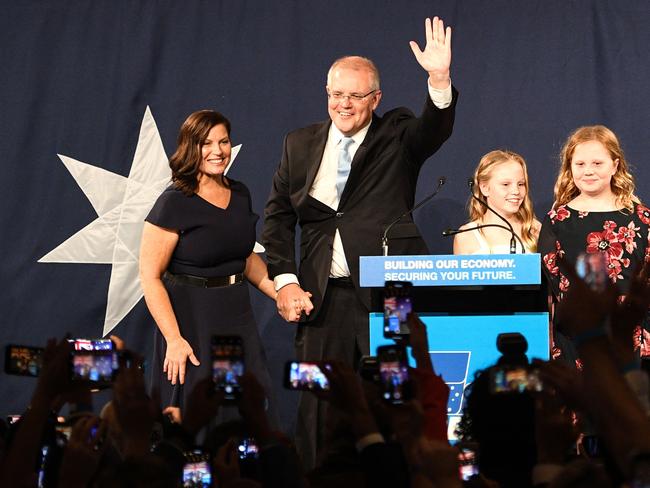
4 — STOCK MARKET AT RECORD HIGH
Finally. After 12 long years, the Australian share market broke through the record it set on the eve of the global financial crisis.
The nation’s benchmark share index, the ASX 200, closed at 6845.1 points on July 30.
The gains took the index, which broadly tracks the nation’s 200 largest listed companies, past its previous closing peak of 6828.7 points.
That record was set in November 2007 – just ahead of the global financial crisis which savaged markets across the globe and plunged the US into its worst economic downturn since the Great Depression.
The new record high followed a stellar run by Aussie stocks as falling interest rates and the realisation they would not rise any time soon pumped up the market.
Investors were happy to take some profits but the ASX soon recovered its momentum to touch a new closing high of 6863.9 points in late November.
All up the stock market rose about 20 per cent in 2019 in a run which added close to $380 billion to the value of the nation’s biggest companies.
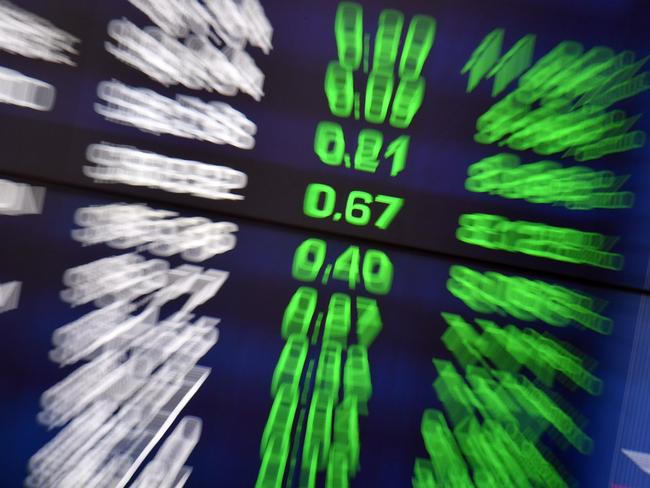
3 — WESTPAC
Who would have thought it was possible to think any less of a bank.
But the dirty money and child exploitation scandal which has engulfed Westpac managed to achieve just that.
The nation’s oldest bank was plunged into crisis in November after it was accused of breaching the nation’s anti-money-laundering and counter-terrorism-financing laws more than 23 million times.
That was bad. But revelations if failed to properly monitor and report transactions that appear to have funded child sexual abuse in the Philippines took the scandal to a whole other level.
Despite doing his best to hold on, within the week Westpac chief Brian Hartzer had been forced out and chairman Lindsay Maxsted compelled to bring forward his retirement.
A string of class actions and the biggest fine in Australian corporate history now beckon.
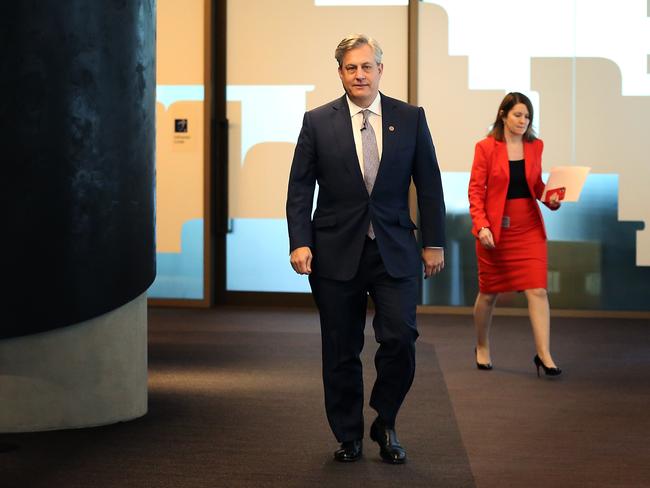
2 — THE BANKING ROYAL COMMISSION
Seven rounds of public hearings. The appearance of more than 130 witnesses. A review of over 10,000 public submissions. And 76 recommendations.
The final report from the Royal Commission into Misconduct in the Banking, Superannuation and Financial Services Industry landed in February, with three volumes spanning more than 1100 pages.
That is a lot of words. But Commissioner Kenneth Hayne cut to the chase when he observed that “greed – the pursuit of short-term profit at the expense of basic standards of honesty” was at the root of the financial sector’s many problems.
Only one big four bank chief, ANZ’s Shayne Elliott, remains in place since the royal commission first broke, while its recommendations will reverberate and reshape the sector for years to come.
That said, the successful push back by mortgage brokers against having customers, not banks, pay for their services – recommendation 1.3 – shows change will not come easy.
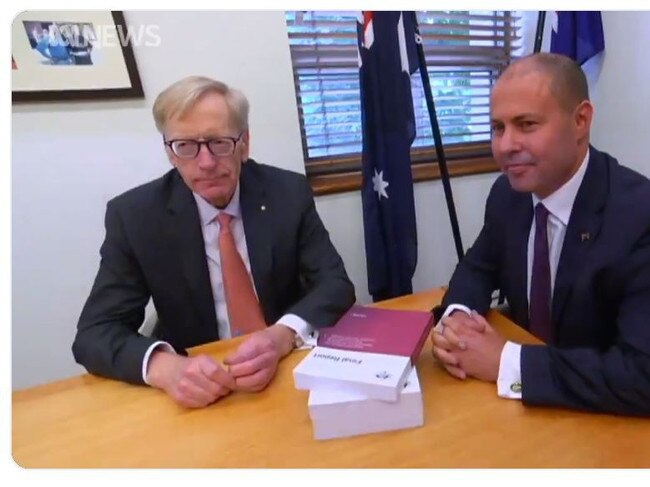
1 — INTEREST RATES
How low can they go? And is the Reserve Bank going to join its global peers in launching a money printing program?
Interest rates have been the major theme of 2019.
The year started with the nation’s cash rate sitting at an already record low of 1.5 per cent and a general outlook that there was just as much chance that rates would rise as they would fall.
It ended it with the cash rate at 0.75 per cent, economists virtually united in predicting it will go lower and the Reserve Bank mapping out what unconventional monetary policy measures would look like.
Interest rates are front of mind for investors who have pushed share prices to record highs as they grit their teeth and move into equities amid falling returns from safer fixed interest investments such as term deposits and bonds.
How low can they go and how long will they stay there will remain crucial questions for investors in 2020.
